#ambrose of milan
Text
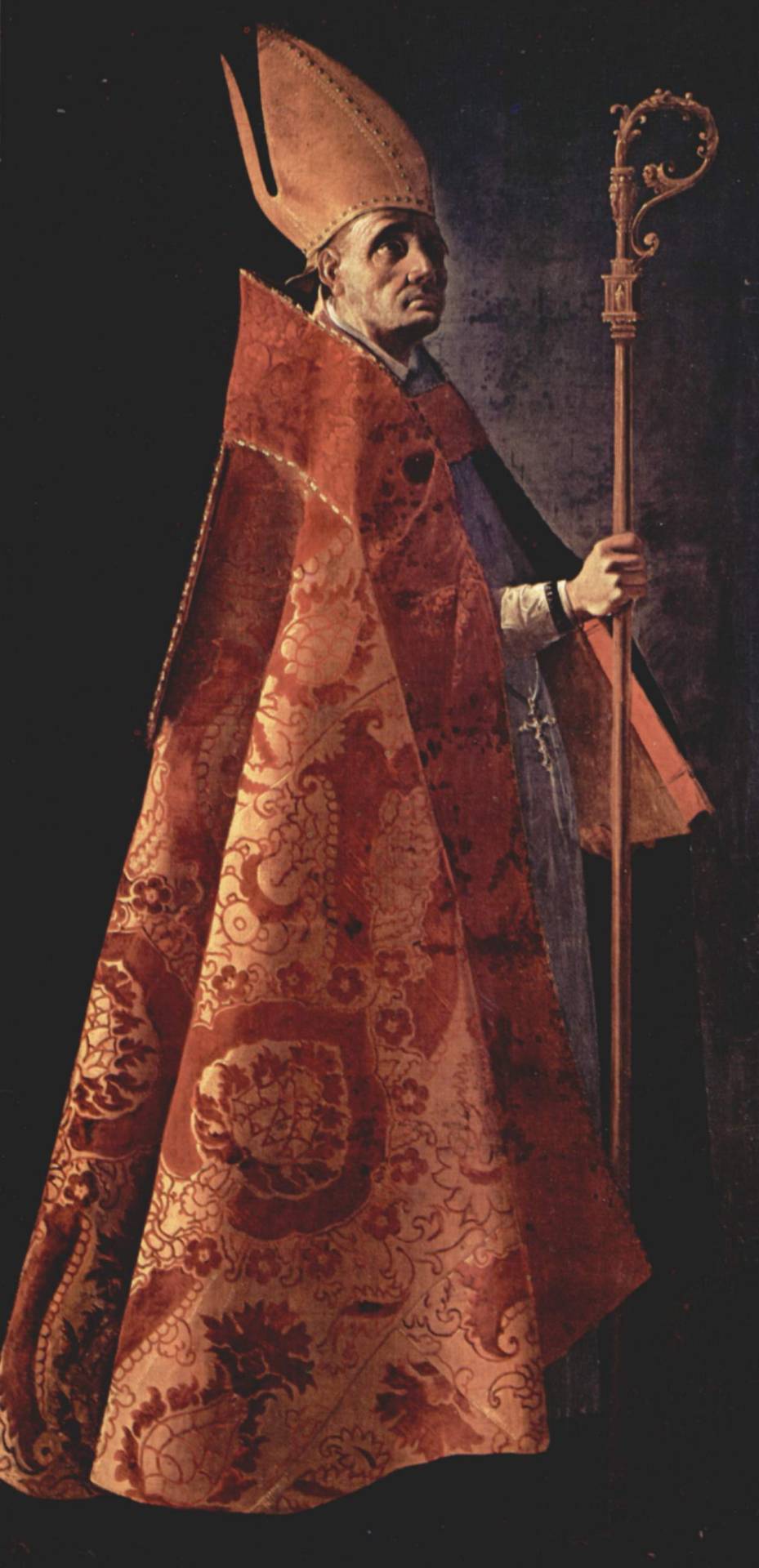
St. Ambrose, Francisco de Zurbarán, 1626-27
#art#art history#Zurbaran#Francisco de Zurbaran#portrait#portrait painting#historical portrait#imaginary portrait#St. Ambrose#Ambrose of Milan#religious art#Christian art#Christianity#Catholicism#Roman Catholicism#Baroque#Baroque art#Spanish Baroque#Tenebrism#Caravaggism#Caravaggisti#Spanish art#17th century art#Museo de Bellas Artes de Sevilla
92 notes
·
View notes
Text
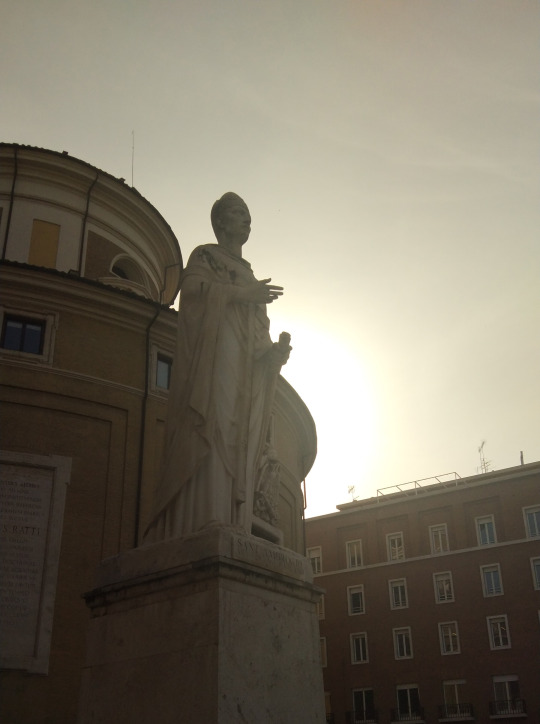
Basilica of Santi Ambrogio e Carlo al Corso, Rome.
#architecture#sculpture#santi ambrogio#saint ambrose#ambrose of milan#catholic church#photography#sunset#warm#summer#my stuff
13 notes
·
View notes
Text
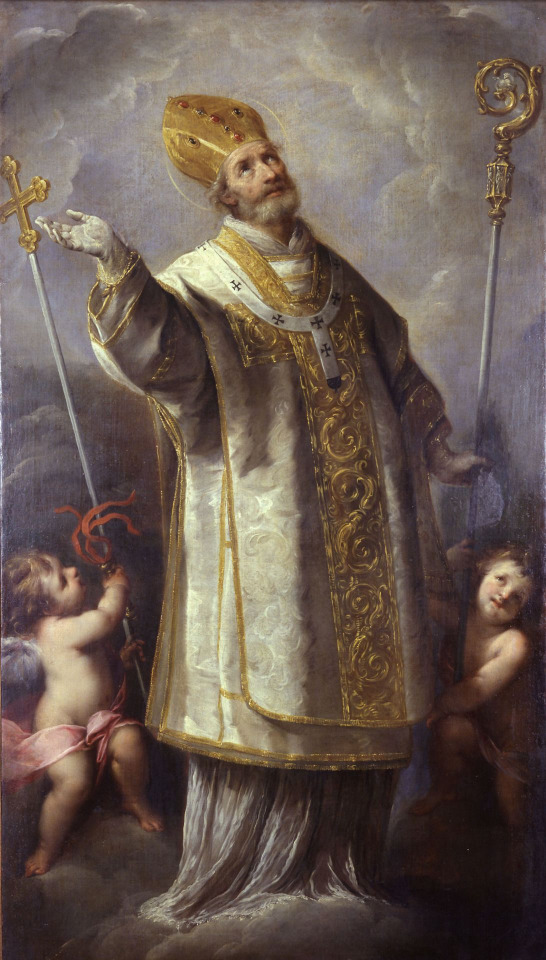
THE DESCRIPTION OF SAINT AMBROSE OF MILAN
Feast Day: December 7
"It is preferable to have a virgin mind than a virgin body. Each is good if each be possible; if it be not possible, let me be chaste, not to man but to God."
Like Augustine himself, the older Ambrose, born around 340, was a highly educated man who sought to harmonize Greek and Roman intellectual culture with the Catholic faith. Trained in literature, law, and rhetoric, he eventually became the governor of Liguria and Emilia, with headquarters at Milan. He manifested his intellectual gifts in defense of Christian doctrine even before his baptism.
While Ambrose was serving as governor, a bishop named Auxentius was leading the diocese. Although he was an excellent public speaker with a forceful personality, Auxentius also followed the heresy of Arius, which denied the divinity of Christ. Although the Council of Nicaea had reasserted the traditional teaching on Jesus' deity, many educated members of the Church – including, at one time, a majority of the world's bishops – looked to Arianism as a more sophisticated and cosmopolitan version of Christianity. Bishop Auxentius became notorious for forcing clergy throughout the region to accept Arian creeds.
At the time of Auxentius' death, Ambrose had not yet even been baptized. But his deep understanding and love of the traditional faith were already clear to the faithful of Milan. They considered him the most logical choice to succeed Auxentius, even though he was still just a catechumen. With the help of Emperor Valentinan II, who ruled the Western Roman Empire at the time, a mob of Milanese Catholics virtually forced Ambrose to become their bishop against his own will. Eight days after his baptism, Ambrose received episcopal consecration on Dec. 7, 374. The date would eventually become his liturgical feast.
Bishop Ambrose did not disappoint those who had clamored for his appointment and consecration. He began his ministry by giving everything he owned to the poor and to the Church. He looked to the writings of Greek theologians like St. Basil for help in explaining the Church's traditional teachings to the people during times of doctrinal confusion. Like the fathers of the Eastern Church, Ambrose drew from the intellectual reserves of pre-Christian philosophy and literature to make the faith more comprehensible to his hearers. This harmony of faith with other sources of knowledge served to attract, among others, the young professor Aurelius Augustinus – a man Ambrose taught and baptized, whom history knows as St. Augustine of Hippo.
Ambrose himself lived simply, wrote prolifically, and celebrated Mass each day. He found time to counsel an amazing range of public officials, pagan inquirers, confused Catholics and penitent sinners. His popularity, in fact, served to keep at bay those who would have preferred to force him from the diocese, including the Western Empress Justina and a group of her advisers, who sought to rid the West of adherence to the Nicene Creed, pushing instead for strict Arianism. Ambrose heroically refused her attempts to impose heretical bishops in Italy, along with her efforts to seize churches in the name of Arianism. Ambrose also displayed remarkable courage when he publicly denied communion to the Emperor Theodosius, who had ordered the massacre of 7,000 citizens in Thessalonica leading to his excommunication by Ambrose. The chastened emperor took Ambrose's rebuke to heart, publicly repenting of the massacre and doing penance for the murders. "Nor was there afterwards a day on which he did not grieve for his mistake," Ambrose himself noted when he spoke at the emperor's funeral.
The rebuke spurred a profound change in Emperor Theodosius. He reconciled himself with the Church and the bishop, who attended to the emperor on his deathbed. St. Ambrose died in 397. His 23 years of diligent service had turned a deeply troubled diocese into an exemplary outpost for the faith. His writings remained an important point of reference for the Church, well into the medieval era and beyond. St. Ambrose has been named one of the 'holy fathers' of the Church, whose teaching all bishops should 'in every way follow.'
Ambrose joins Augustine, Jerome, and Gregory the Great as one of the Latin Doctors of the Church.
#random stuff#catholic#catholic saints#ambrose of milan#san ambrocio#saint ambrose#beekeepers#candlemakers#doctor of the church
2 notes
·
View notes
Video
youtube
“"Veni redemptor gentium" (Come, Redeemer of the nations) is a Latin Advent or Christmas hymn by Ambrose of Milan” - Wikipedia
9 notes
·
View notes
Text
No one heals himself by wounding another.
— Ambrose
0 notes
Text
just spent almost an hour monologuing to my flatmate about ambrose of milan to get her to change her final essay subject to him and guess what SHE DID
#i should not isolate myself#I corner the first person i meet and infodump at them#history#ancient history#ambrose of milan
0 notes
Text
“Splendor Paternae Gloriae”
by Ambrose of Milan
Splendor of the Father’s glory,
bringing forth light from light,
light of light and source of brightness,
the brightening day of days,
and true Sun slide in,
gleaming with eternal brilliance,
and radiance of the Holy Spirit
pour into our senses.
With prayers let us also call the Father—
the Father of eternal glory,
the Father of mighty grace—
that he may remove the deceitful blame,
that he may shape our actions of vigour,
dullen the teeth of the grudging one,
favourably guide harsh occurrences,
bestow the grace of carrying things through,
guide the mind and rule it
with a chaste, faithful body;
may faith be inflamed with heat,
may it not know the poisons of fraud.
And may Christ be food for us,
and may faith be our drink;
happy, may we drink the sober
inebriation of the Spirit.
May this happy day come to pass,
may modesty exist as the dawn,
faith like the noonday,
and may the mind not know the dusk.
Dawn pulls the chariot,
may the complete dawn come,
the Son complete in the Father,
and the Father complete in the Word.
#splendor paternae gloriae#ambrose of milan#poem#poetry#advent#christmas#bestow the grace of carrying things through
0 notes
Note
hi, this is a legitimate question, I'm not trying to start any kind of argument or debate. Where does the idea in Catholicism that the Virgin Mary was free from sin come from? Again, I'm merely asking for informational purposes, not to start anything.
Okay, lets hit this real quick.
The sinlessness of Mary was a majority, but not unanimous, opinion of the orthodox Christian community by the late fourth century. Saint Augustine can confidently say that out of all the saints, she is the only one who did not sin; as does his teacher, Saint Ambrose. Maximus of Turin likewise takes this position, but instead of talking about her lack of sinfulness, he focuses on a positive formula: she has "original grace." The Syriac Fathers, of whom Ephraem of Edessa is probably the most well known, also love, love, love drawing parallels between Mary and Eve, as well as giving her titles like "all-pure" and "most-holy."
(Lest anyone think this is a post-Nicene development in Christian theology, Hippolytus of Rome also taught that Mary was free from corruption. This is especially interesting, because Hippolytus is said to be a student of Saint Irenaeus, who could trace his teaching back to Saint John the Apostle).
But by the Middle Ages, all that was universally agreed on was that Mary was never personally responsible for committing a sin; there was a question of whether she was still under the effects of Original Sin. It was an 11th Century English theologian who first formulaically proposed the idea that Mary was free from sin from the moment of her creation; he said it was possible, it was fitting, and so God did it. (Notice that this argument expressly does not argue that Mary had to be immaculate in order to give birth to the Savior). It wasn't until Franciscan theologian Blessed Duns Scotus took up the cause that it became the controversy that it did. Duns Scotus (who, it should be noted, was also the major proponent for the absolute primacy of Christ in the Middle Ages) provided arguments from Scripture, tradition, and reason to argue in favor of the Immaculate Conception.
That being said, Mary's Immaculate Conception remained a pious opinion for a long time; even the Council of Trent, which affirms the Virgin Mary's freedom from personal sin, only suggests Mary may have been exempt from Original Sin. It is not until 1854 that the Catholic Church elevated the doctrine of the Immaculate Conception to dogma and formally defined what that doctrine meant.
As I said, this is a very, very fast overview; if you want a Scriptural reference, I would suggest Luke 1:28, in which Mary is referred by the Archangel Gabriel not by name, but by a title: κεχαριτωμένη, or Kecharitōmenē, translated as "Favored One" or "Full of Grace." This word, which is unique in Greek literature to Luke, indicates that Mary is some sort of beneficiary of God, and (as Fr. Charles Grondin says) is an identity; it's connected to her personhood.
#asks#Christianity#Catholicism#Virgin Mary#Immaculate Conception#Gospel of Luke#Duns Scotus#Saint Augustine#Ephraem the Syrian#Saint Irenaeus#Hippolytus of Rome#Saint Ambrose of Milan#John the Apostle
44 notes
·
View notes
Text

"But nothing causes such exceeding grief as when anyone, lying under the captivity of sin, calls to mind from where he has fallen, because he turned aside to carnal and earthly things, instead of directing his mind in the beautiful ways of the knowledge of God. So you find Adam concealing himself, when he knew that God was present and wishing to be hidden when called by God with that voice which wounded the soul of him yourself? Why are you concealed? Why do you avoid Him Whom you once longed to see? A guilty conscience is so burdensome that it punishes itself without a judge, and wishes for covering, and yet is bare before God."
+ St. Ambrose of Milan
#Babe wake up#it’s time for repentance#orthodox christianity#eastern orthodoxy#eastern orthodox#orthodoxy#orthodox#christianity#St. Ambrose of Milan#catholicism#roman catholic#catholique#christian quotes
37 notes
·
View notes
Text

"As in Paradise, God walks in the Scripture, seeking man."
~St. Ambrose of Milan
(Photo via istockphoto)
17 notes
·
View notes
Text
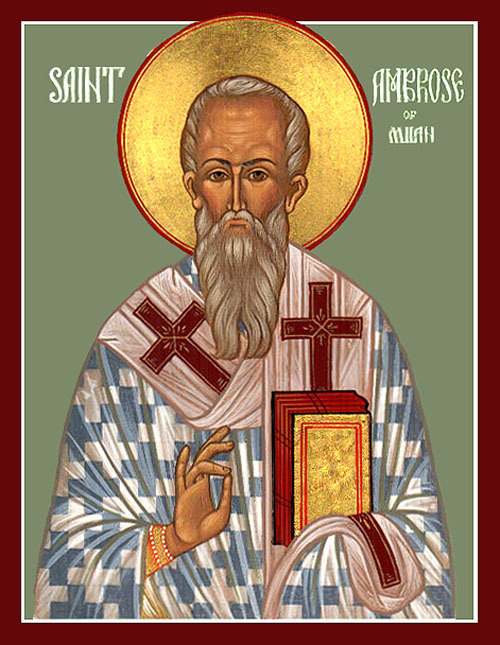
Healing Prayer of Saint Ambrose of Milan
Thee alone I follow, Lord Jesus, Who heals my wounds. For what shall separate me from the love of God, which is in Thee? Shall tribulation, or distress, or famine? I am held fast as though by nails, and fettered by the bonds of charity. Remove from me, O Lord Jesus, with Thy potent sword, the corruption of my sins. Secure me in the bonds of Thy love; cut away what is corrupt in me. Come quickly and make an end of my many, my hidden and secret afflictions. Open the wound lest the evil humor spread. With Thy new washing, cleanse in me all that is stained. Hear me, you earthly men, who in your sins bring forth drunken thoughts: I have found a Physician. He dwells in Heaven and distributes His healing on earth. He alone can heal my pains Who Himself has none. He alone Who knows what is hidden can take away the grief of my heart, the fear of my soul: Jesus Christ. Christ is grace! Christ is life! Christ is Resurrection! Amen.
19 notes
·
View notes
Text

The body of St. Ambrose of Milan.
#traditional catholicism#traditional catholic images#traditional catholic saints#traditional catholic father's and doctors of the church#st. ambrose of milan#memento mori#catholic gothic
5 notes
·
View notes
Photo

"How far, O rich, do you extend your senseless avarice? Do you intend to be the sole inhabitants of the earth? Why do you drive out the fellow sharers of nature, and claim it all for yourselves? The earth was made for all, rich and poor, in common.”
—Saint Ambrose of Milan, 4th Century
[alive on all channels]
#rich and poor#political cartoons#Saint Ambrose of Milan#4th century#timeless problems#eat the rich#Alive On All Channels
25 notes
·
View notes
Text
I would encourage anyone going to a museum with middle ages and renaissance era European paintings to pick a saint and search them in paintings
I would recommend it even more if you do it with St Sebastian
No particular reason of course
#though i am having fun with doing it with Ambrose of Milan here for a particular reason which is#that i listened to a book about him in the bus#so i'm just going YOU every time i see him#... i still collect Sebastian though#barks.txt
6 notes
·
View notes
Text
Today's St. Ambrose, patron of Milan, and as per tradition is also the day on which La Scala's season opens.

Double Duck - Prima della Prima (2008)
Originally called "Nuovo Regio Ducal Teatro Alla Scala" (New Royal Ducal Alla Scala Theatre), it was inaugurated on 3rd August 1778 after the old Ducal Theatre was completely destroyed by a fire. To make space for the new building, the church of Santa Maria alla Scala was demolished and the new theatre built in its place (hence the name).
Alla Scala Theatre is the main italian opera theatre and one of the most illustrious in the world.

Topolino #2767 cover
For many years now, the season opening of La Scala is broadcasted live on national tv main channel (yes, we get 3 hours non stop opera on the state tv channel 1... so what?), this year's gonna be "Boris Godunov"... and I've gotta go 'cause it's starting!!! :D

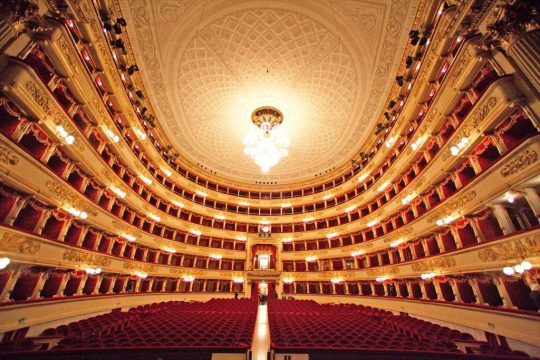
#la scala#prima#la scala seaso opening#donald duck#double duck#milan#st. ambrose#la scala theatre#topolino magazine#boris godunov
22 notes
·
View notes
Photo

Today we also celebrate the memory of the Holy Wonderworking Bishop of Milan, Ambrose. Saint Ambrose fervently opposed the Arian heresy and is known for his strict yet kind character. He has left us many writings on various theological discourses and even liturgical hymns, introducing antiphonal chanting to the West and therefore being the founder of what we know today as Ambrosian Chant. May he intercede for us always + #saint #ambrose #ambrosius #milan #bishop #arian #heresy #hymn #writing #kind #orthodox #saintoftheday (at Milan, Italy) https://www.instagram.com/p/Cl24lGPDksy/?igshid=NGJjMDIxMWI=
19 notes
·
View notes